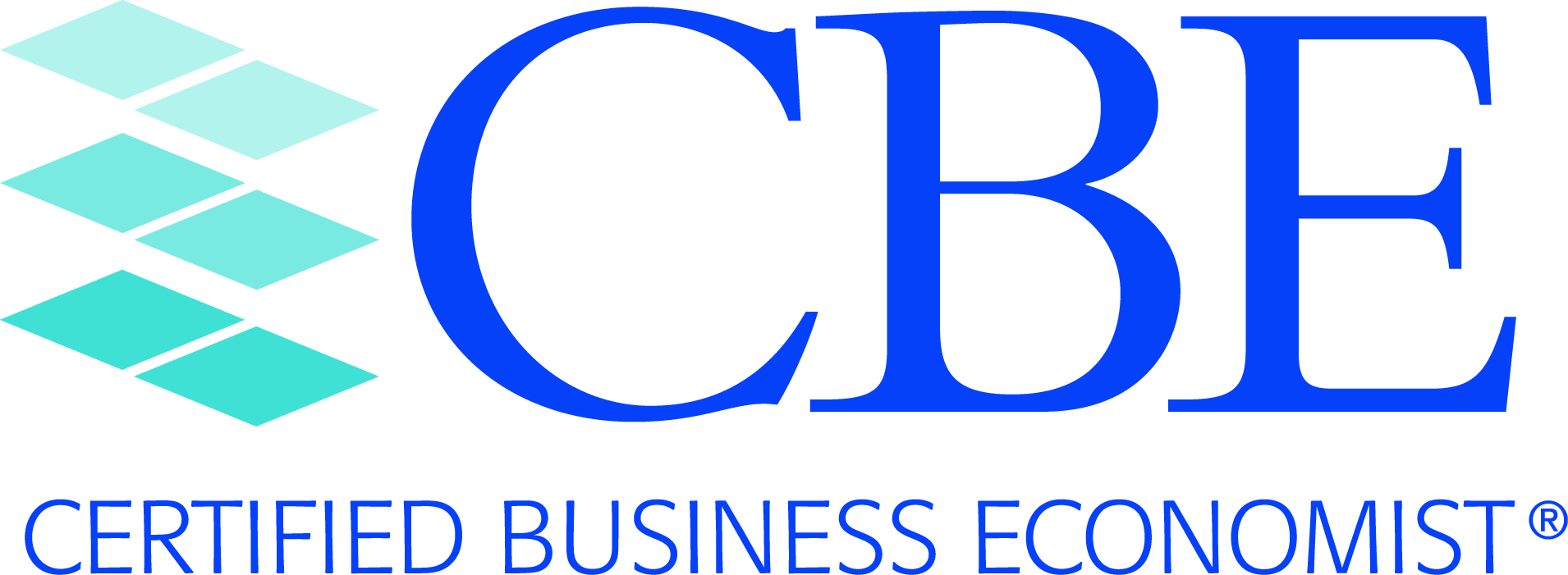
The Certification in Applied Economics and Data Analytics
Earn your Degree and CBE from these CBE Partner Programs
Are you a student currently studying to earn your bachelor's or master's degree? Or are you a potential student looking in to master's programs in economics? Earning your CBE shortly after graduation from a CBE-affiliated partner university is an effective way to jump-start your career!
NABE Launches Inaugural CBE University Partnerships (6/16/17)
NABE Expands CBE University Partnerships (8/28/17)
University of Memphis Becomes Sixth University to Partner with NABE (3/15/18)
University of Maryland, University of Texas at Arlington, and University of Connecticut Become NABE CBE University Partners (10/1/18)
University of Wisconsin-Madison Becomes NABE's Newest University Partner (4/2/19)
University of Arkansas Becomes NABE's Newest University Partner (12/5/19)
Farmingdale State College Joins Roster of NABE University Partners (7/28/20)
American University Joins Roster of NABE University Partners (2/23/22)
NABE Expands CBE University Partnerships with Addition of Villanova University (3/13/24)
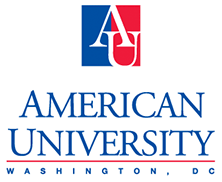
Understanding markets, monetary forces, human behavior, and organizational behavior is vital to governments, businesses, and organizations. To prepare you for a career that fits your interests, American University's Master of Arts in Economics program offers five distinct tracks: applied economics, development economics, gender analysis in economics, financial economic policy, and applied economics (online only). Our faculty combines high-quality teaching, serious scholarship, and real-world experience influencing economic policy. The majority of our faculty members have international experience, and there are rich offerings of courses dealing with global economic issues.
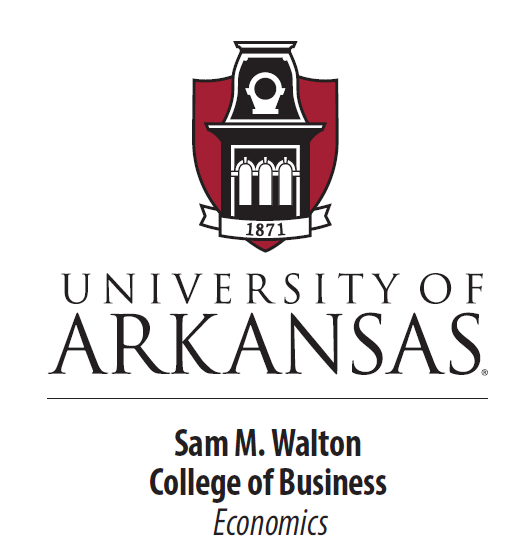
The Master of Science in Economic Analytics is a 10-month intensive program that will guide students through economic modeling and theory to computational practice and cutting-edge tools, providing a thorough training in descriptive, predictive, and prescriptive analytics. Students will be equipped with a solid knowledge of econometric and machine learning methods, optimization, and computing. These “big-data” skills, combined with knowledge of economic modeling, will enable students to identify, assess, and seize the opportunity for data-driven value creation in the private and public sector. The MS in Economic Analytics is a STEM designated degree.
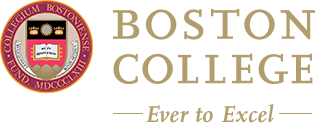
Flexible, rigorous, and relevant, the Master of Science (M.S.) in Applied Economics at Boston College provides students with the theoretical knowledge and practical, data-analytics skills they need to succeed in today's data-driven economy. This STEM-designated degree program prepares students to use the data analysis and tools organizations rely on to evaluate policies and programs, develop forecasts, better understand consumer behavior, and analyze marketing efforts. Housed at a top-tier research institution and taught by a faculty of accomplished academics and current industry practitioners, Boston College's M.S. in Applied Economics also emphasizes ethical decision-making—a hallmark of Jesuit education.

The Master of Arts in International Economics and Finance (MA) program at Brandeis International Business School (IBS) emphasizes critical thinking while providing students with the analytical tools needed to make effective and impactful business decisions. This enables them to tackle economic, business and financial challenges requiring both rigorous analysis and an international perspective. The program is ranked among the top 10 pre-experience programs in the U.S. by the Financial Times.

The MS Applied Economics program in the Carl H. Lindner College of Business at the University of Cincinnati is pleased to partner with NABE through its CBE program. A graduating student with skills in economic modeling and data analysis, in combination with the CBE designation, offers compelling value to any potential employer. Employers can be confident that when they hire a UC MS in Applied Economics graduate with a CBE designation that the individual has demonstrated mastery in the critical thinking and data analysis necessary to provide insights and recommendations for business decisions.
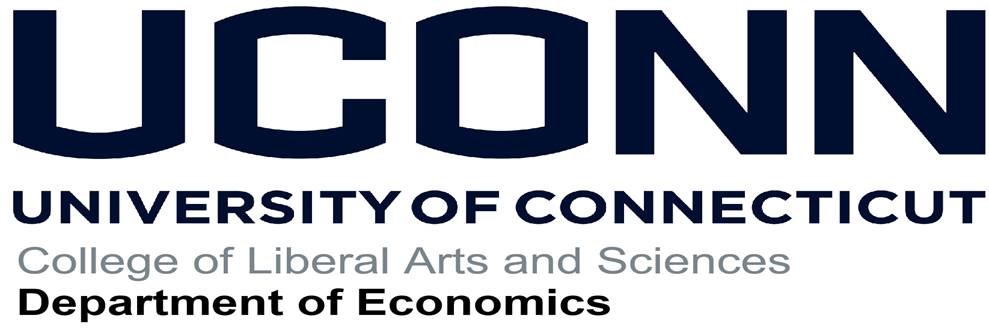
The University of Connecticut Master of Science in Quantitative Economics (MSQE) emphasizes the development of skills in quantitative methods and data analysis, as well as the application of those skills to economic problems. It is a STEM program that combines training in economic principles/theory with strong training in quantitative and analytical methods.

The Bachelor of Science in Applied Economics program at Farmingdale State College is a comprehensive course of study that prepares students to be real-life problem solvers so that upon graduation students are ready to be employed in entry and junior-level positions in business and industry, the public sector, and non-profit sector. The program features hands-on training in data analytical techniques and culminates with a capstone course sequence of Economics Research and Reporting followed by Applied Economic Analysis/Senior Project. The CBE partnership will motivate and better prepare our students to acquire up-to-date practical skills valued in real business world.

The Master of Science in Applied Economics at The George Washington University teaches students how to combine economic theory with econometric techniques to understand how the global economy affects today’s multinational enterprises. Through this STEM-designated program, students get extensive practice applying economic analysis to real world problems and will graduate with the tools needed for a successful career as an applied economist. Thanks to GW’s array of graduate programs, students can earn both a master’s degree in applied economics and a graduate certificate in areas such as budgeting and public finance, data science, and geographical information systems, and others. The CBE partnership helps ensure that our graduates have mastered the practical skills that global enterprises value.

Students major in economics at John Carroll University through either the College of Arts and Sciences (B.A. in Economics) or the Boler School of Business (B.S. in Economics). They develop theoretical knowledge, data-analytic abilities, and communication skills that enable them to evaluate and present findings to businesses on domestic and global economic issues. In the tradition of Jesuit education, students incorporate ethical dimensions and social responsibility to produce practical solutions in business and other sectors.

The University of Maryland's Master of Science Program in Applied Economics offers rigorous training in quantitative analysis, economic modeling and econometrics. The courses are taught by teaching faculty at the University of Maryland and by other PhD economists working at the many private firms, government agencies, and non-governmental organizations in the Washington, DC area. Our students and graduates work at many of the same places. The curriculum emphasizes empirical skills for evidence-based analysis.
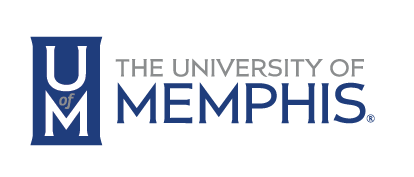
The MA in Economics at the University of Memphis provides a strong foundation in economic theory combined with extensive training in econometrics and applied empirical methods. Graduates of our program offer employers valuable critical thinking and analytic skills required for sound business decision making. Our faculty publish regularly in major academic journals and pride themselves on providing cutting-edge techniques and individualized attention to students. MA students may move directly into our PhD program; a limited number of assistantships are available for outstanding applicants.
.png)
The MS in Economic Data Analytics program focuses on the major growth area of data analytics. One must know how to find data, be critical of it, develop it by use of software packages, and explain what has been learned by analysis through the lens of economic theory. Advances in analysis allow us to better understand key issues, such as pricing and cost, inventory management, population trends, and other issues that impact business and government. The emphasis of the MS in Economic Data Analytics program is on quantitative analysis based on economic logic. It is a 10-course, 30-hour program highly focused on relevant economic theory and empirical tools needed by successful business economist analysts.
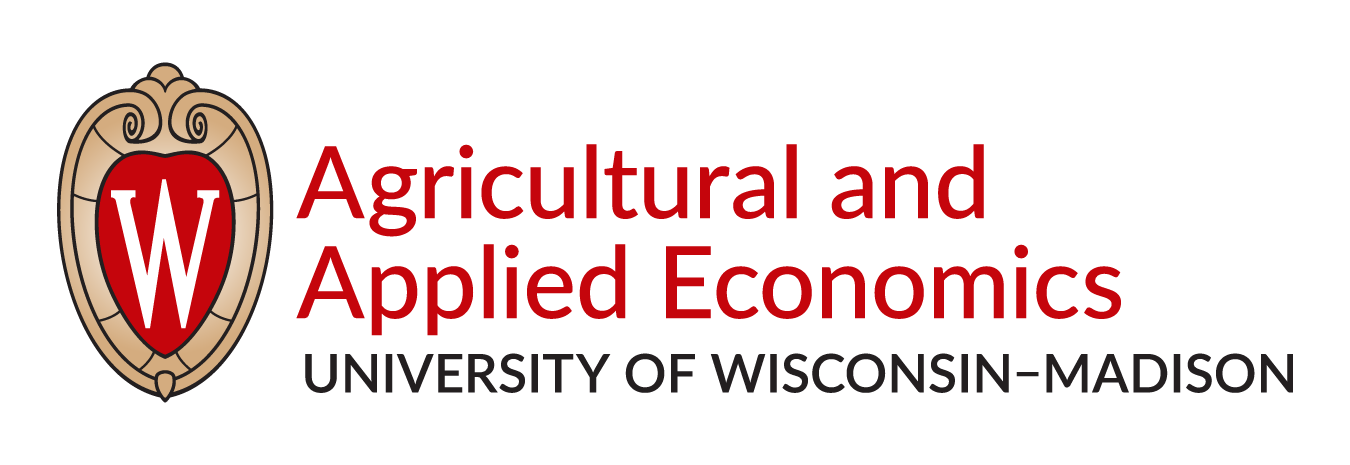
The MS Agricultural & Applied Economics Professional Option (MSPO) program at the University of Wisconsin-Madison is a full time, 15-month, accelerated STEM program that prepares students to enter the professional workforce in data-intensive and quantitatively focused jobs. The curriculum features three semesters and one summer term of core offerings in econometrics, economic theory, and professional development, along with a capstone practicum class leading to a professional report that functions as a thesis. Students can pursue individual interests in our major fields of specialty: environmental economics, development, food and agriculture, commodity and energy.
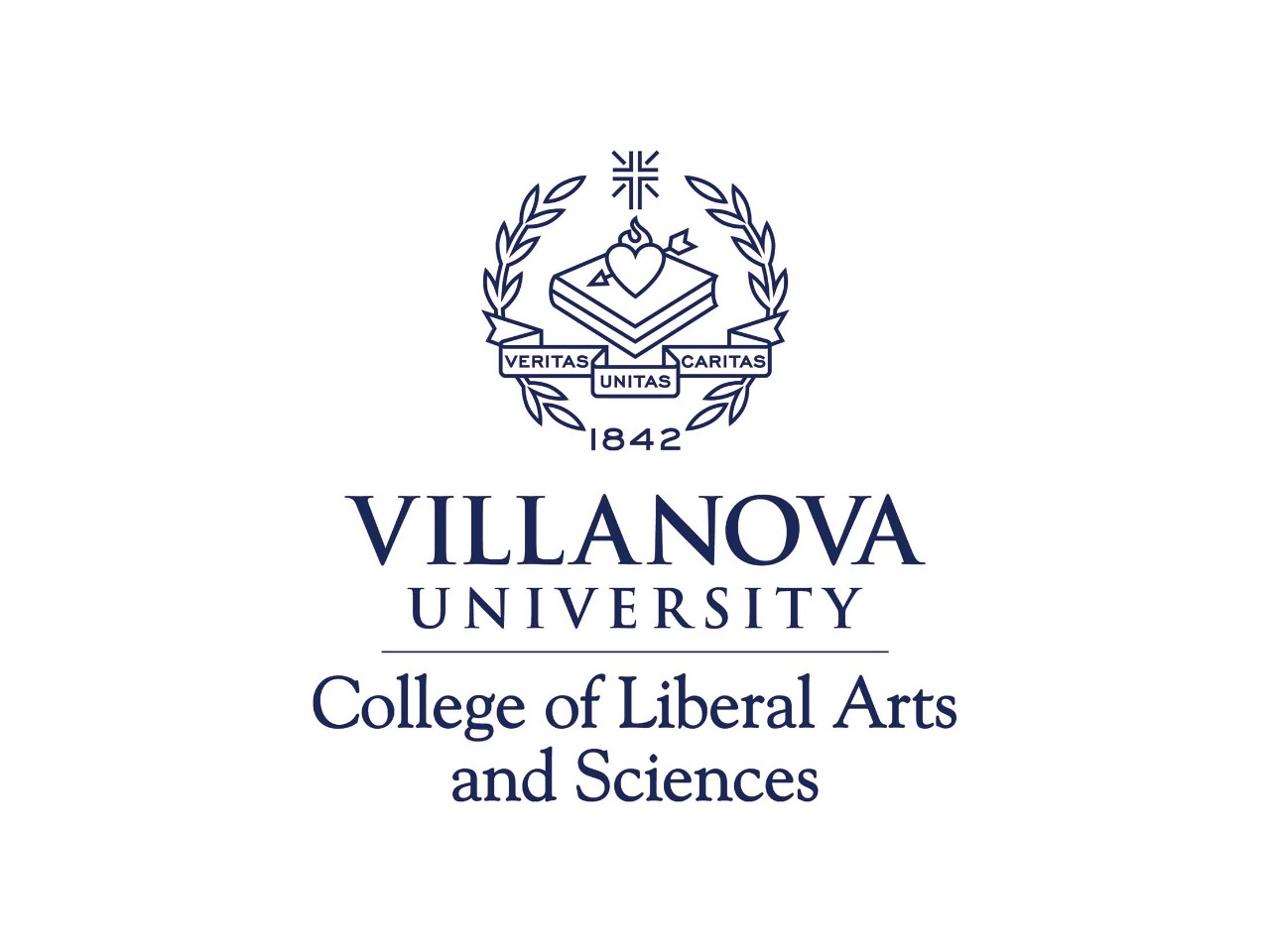
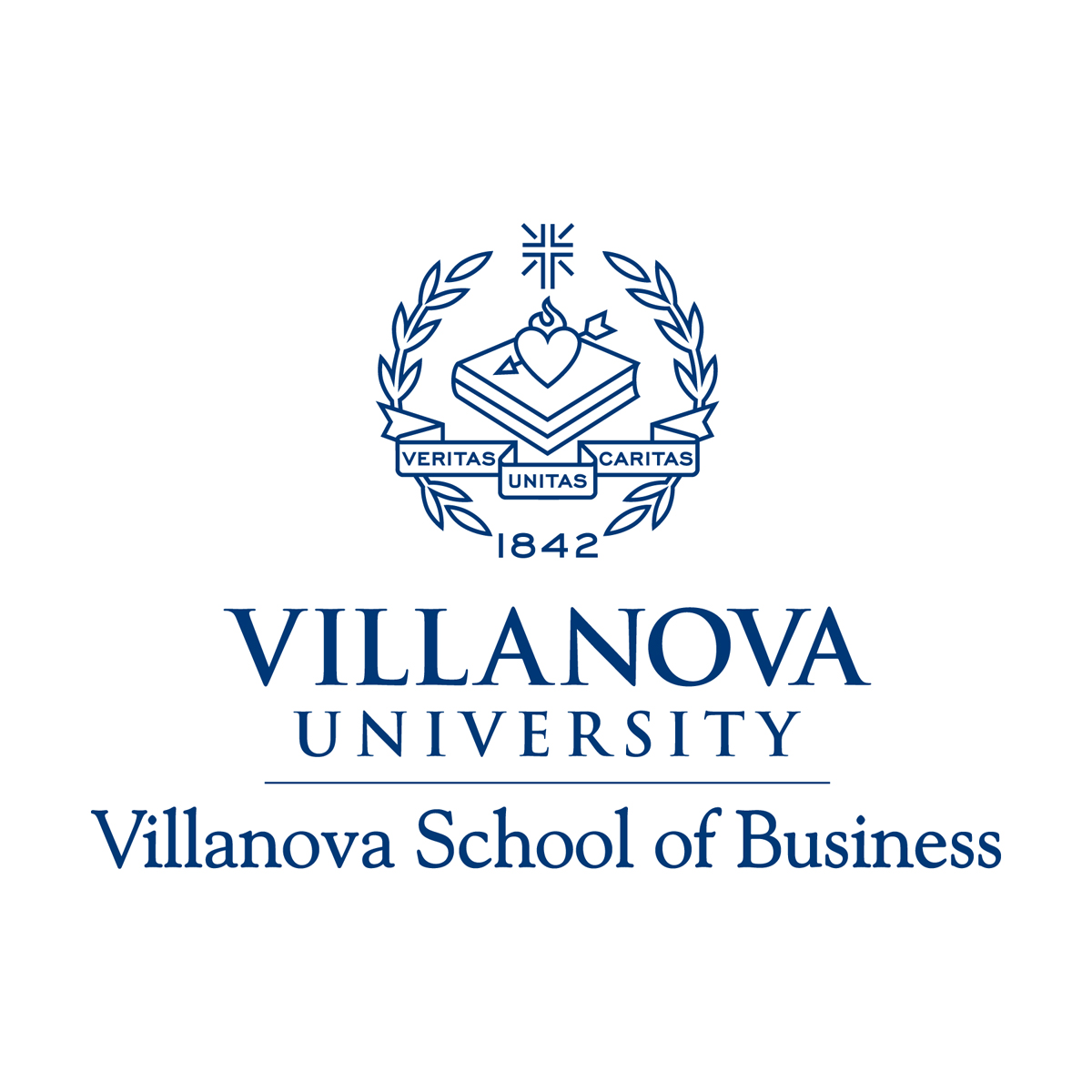
Students major in economics at Villanova University through either the College of Liberal Arts and Sciences (B.A. in Economics) or the Villanova School of Business (Bachelor of Business Administration with a focus in Economics). The curriculum allows specialization in three areas: international economics, quantitative business economics, and public policy. Across all specializations, graduates receive training in applied methods as well as presentation and communication skills. Specific electives are offered to optimally prepare students to become a pCBE before hitting the job market.
“New hires with a CBE are more valuable
to an employer, as we know they have
the skills to contribute.”
Diane Swonk, CBE
Chief Economist
KPMG |
 |
Why Earn a CBE?
The CBE validates your competency, your ambition to advance within the profession, and your commitment to refreshing your skills and knowledge throughout your career to stay on the cutting edge of analytical techniques and economic developments. CBEs are trusted by employers to deploy their skills, tools, and experience to bring clarity to decision-making processes, enhancing outcomes for their organizations. The CBE is verification that you have the skills, knowledge, ethics, and dedication to deliver this value in the workplace.
How Do I Become a CBE?
Candidates must meet the following requirements*:
- Examination. Candidates must pass a comprehensive practical examination.
- Member. Be a member in good standing with NABE.
- Experience. Candidates must have two years of work experience in applied business economics or in a related field.
- Education. Candidates must attain at least a four-year degree.
- Curriculum Requirements. Candidates must complete NABE’s Communication and Presentation Skills for Business Economists and Writing Skills for Business Economists certificate courses or courses deemed equivalent by NABE.
- Ethics. Candidates must review and adhere to the NABE Professional Conduct Guidelines.
- Continuing Education/Renewal. Designees may renew their CBE by completing 30 hours of continuing education every two years and paying a renewal fee.